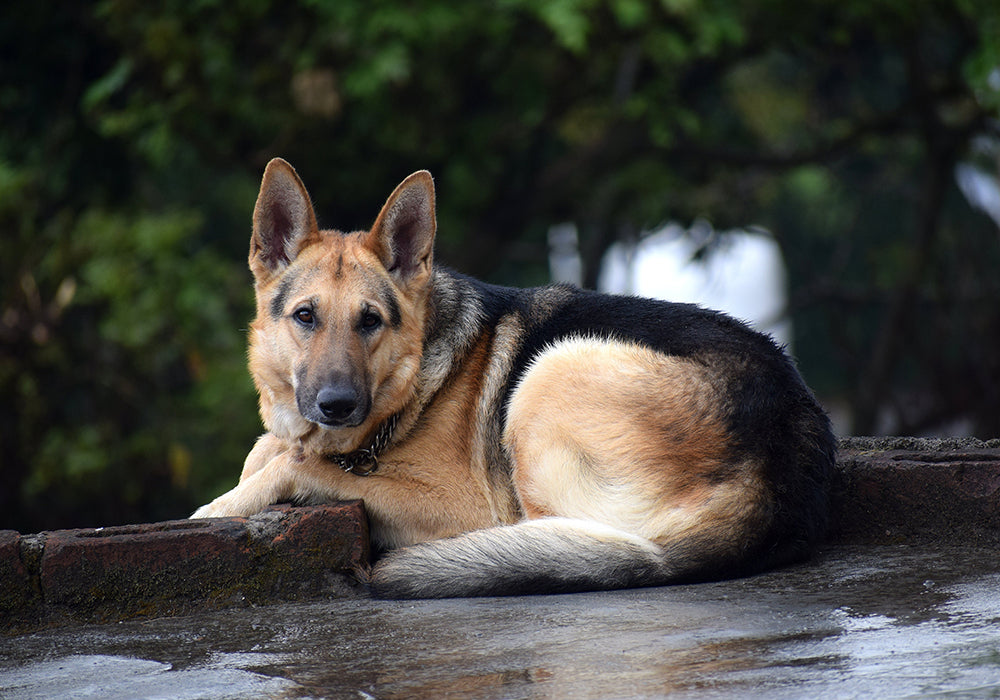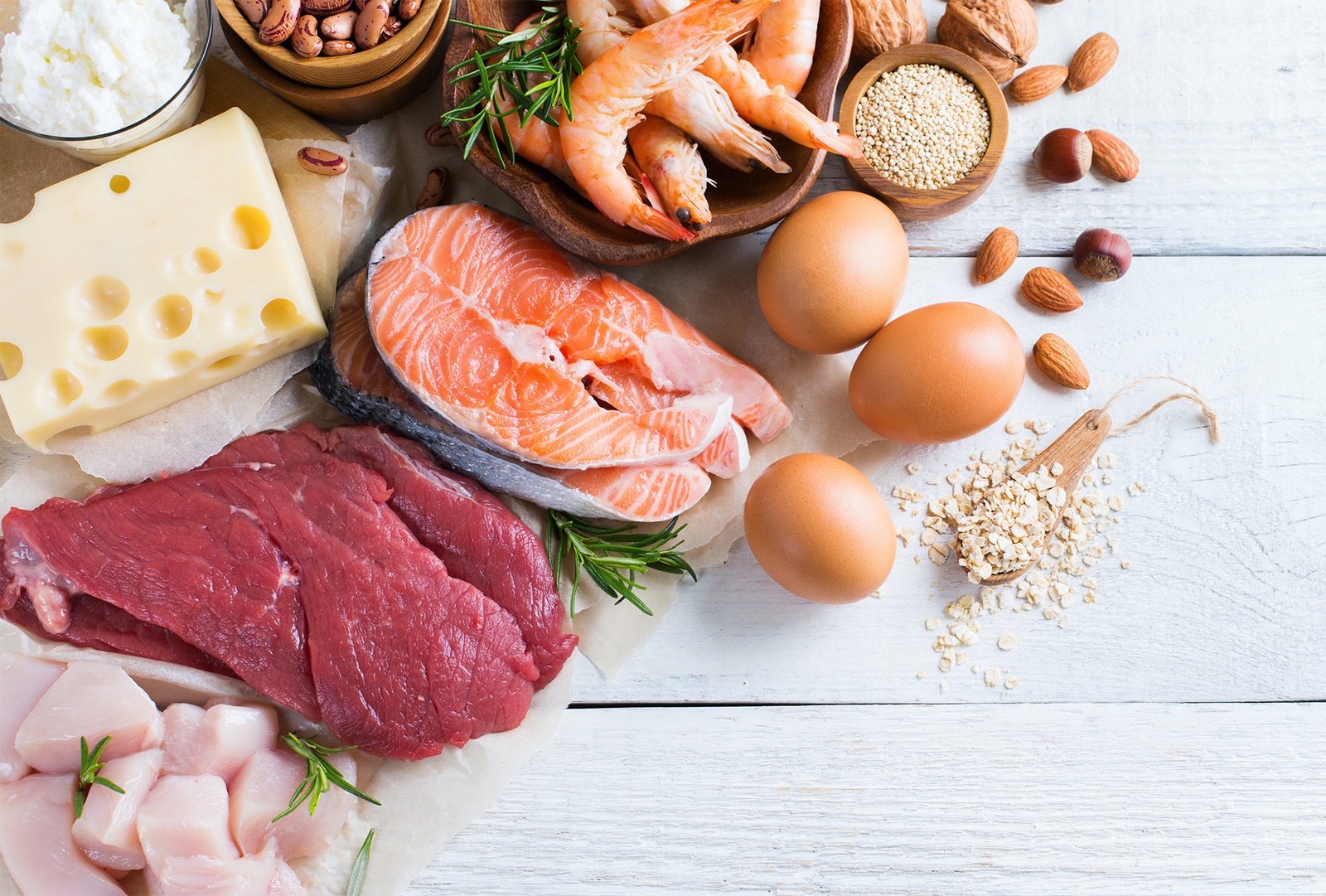Feeding pups is the most demanding job a mom can do, so you want to pay special attention towhat to feed a pregnant dog.
Top-quality food should be continually available. The lactating bitch must have all the nutrients necessary for the repair and functioning of her body, plus all the ingredients for producing high-quality milk in vast quantities. Being a 'growth-type' diet, it must have high levels of energy and first-class protein, fat, minerals, an abundant supply of vitamins, and be low in carbohydrates and unnecessary components. This is the lactation version of the BARF Diet.
Provide as much milk-forming food as possible so that she can easily care for her litter and not lose any condition herself. Not a lot of change to the basicBARF Diet®, but we will take into account the following:
Overall, you’ll need:
They supply the minerals needed, including calcium and phosphorus. High protein levels are also essential for milk production, meaning other protein supplements (tripe, offal, eggs, and cottage cheese) are excellent.
Feed the raw meaty bones either whole or minced, along with Dr. Billinghurst's BARF Diet as alternate meals. If possible, give the fortified milk mix as the primary source of fluid.
This formula consists of one cup or 250 ml of milk [preferably raw], one teaspoon of honey, one or two teaspoons of flaxseed oil, one raw egg [or two egg yolks] - about 60 gm, and one or two junkets [rennet] tablets plus multi-B and C vitamins - so long as this did not put her off drinking it. Blend, bring to room temperature, and keep it there for ten minutes to allow the junket tablet to work. Try this mix on her before whelping so you will know she will drink it and won’t cause digestive upset.
Your dog should eat as much of this high-quality food as she likes, particularly with a big litter to support. She should have the same weight or more than when she was mated, and maintain this weight by the time the pups are weaned. This means she should not deplete her body reserves during lactation.
Newly-made mothers can be picky. Be patient and be prepared to offer alternatives if she refuses one type of food. After the first few days, it is usual for her appetite to return. Her demand for milk will peak at about week three and continue for one or two more weeks, by which time you will have begun to wean the puppies.
Proper nourishment is vital for mom and pups.
Successful breeding depends on your dog’s prior nutrition. Pregnancy will be a draining experience, drawing on nutrients deposited long before becoming pregnant. Past nutritional history dramatically impacts your dog’s ability to become pregnant, hold on to the pregnancy, produce a large, healthy litter without birthing problems, and supply milk to the growing litter.
Dr. Ian Billinghurst, DVM, co-founder of BARF World and author of Grow Your Pups With Bones, states:
“If your bitch has been fed a poor commercial dry diet or even a poorly constructed home-made diet such as an all meat diet, there will be major problems as a result. The ramifications of consuming a poorly formulated nutritional recipe are that she may never become pregnant in the first place. If she does, she may abort the puppies or produce a deformed or limited number of puppies. One must keep this in mind when beginning a breeding program. Here is another important consideration. When you know your bitch is close to coming on heat, temporarily increase both the amount and the quality of the food. Following this advice, her body will respond with brilliant hormone production and a maximum number of healthy eggs shed and a maximum number fertilized. This feeding bonus at mating time will produce the optimum number of puppies, with a very good chance that they will all be healthy. Elevating the levels of kelp, vitamin E, B, and C are important. Especially vitamin C because this vitamin aids in an easy delivery.”
Pregnancy is a demanding event that produces changes and growth inside the mother’s body quickly. A mother’s nutritional needs will change dramatically.
If your dog has been fed a nutritious raw diet throughout her life, then for the first two-thirds of the pregnancy, she will have the basis for a solid pregnancy.
The final trimester is a vital phase because the pups are growing. Your diet for a pregnant dog should include extra supplementation with more protein, vitamins, essential fatty acids, and minerals (except calcium). If your dog develops an increased demand for food, that is your signal she’s not getting enough growth nutrients.
Serve a diet designed to allow growth to occur. Adjusting the amount to feed during the final trimester adequately provides for the growth spurt. Allowing the bitch to become fat from overfeeding will cause further complications with the birthing process. An underfed dog will have similar difficulties because of reduced milk production.
PLEASE NOTE:The science behind proper nutritional needs for the pregnant bitch is a complicated one. It is not the intention of this article to recommend all the requirements needed for a successful pregnancy. Instead, it outlines the basics and choices to produce a healthy litter.
You want to give your pregnant dog the nutrient she needs, and the BARF® Diet will do precisely that. Your pregnant dog won’t require larger volumes if fed properly with high-quality food.
Now that you understand our products’ ingredients, let your pet try them. Shop through the best raw dog food available and give your pet nutrients to support their bodies and minds.



